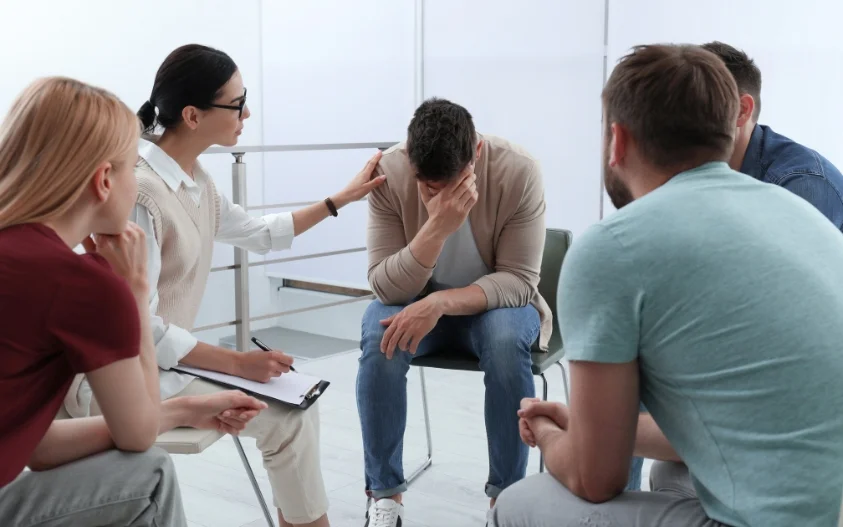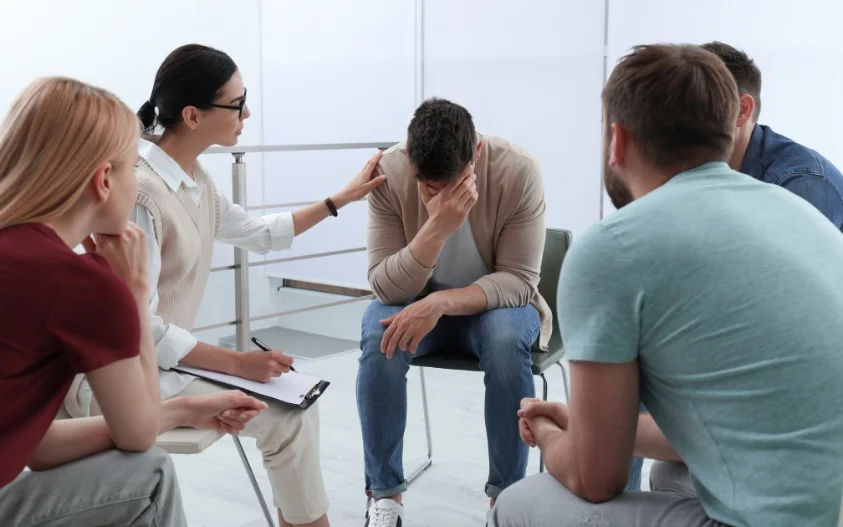24/7 Helpline:
(866) 899-111424/7 Helpline:
(866) 899-1114
Learn more about PTSD Treatment centers in Patriot

Other Insurance Options

Meritain

Horizon Healthcare Service

Evernorth

MHNNet Behavioral Health

Magellan Health

Ceridian

Excellus

PHCS Network

Aetna

Molina Healthcare

WellPoint

AllWell

BlueCross

Multiplan

MVP Healthcare

WellCare Health Plans

Ambetter

Optum

American Behavioral

UMR























